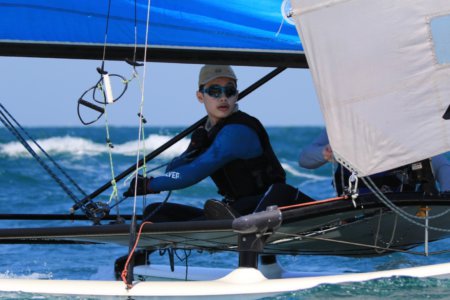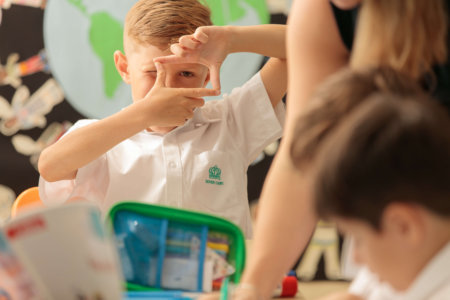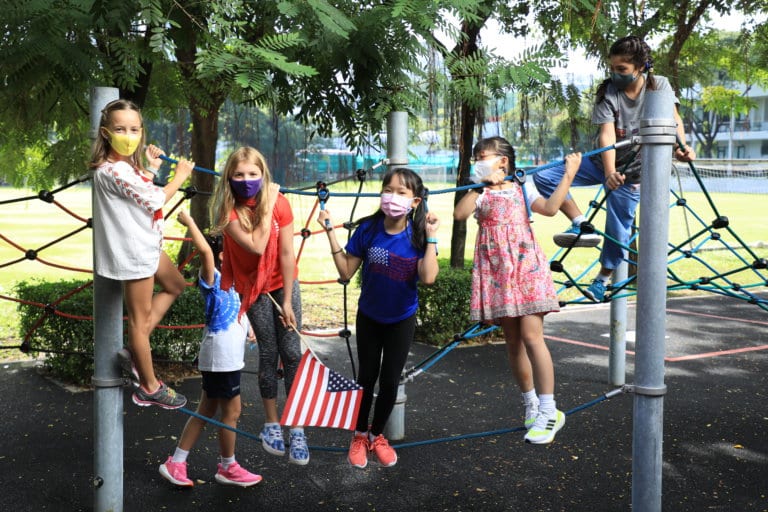
Today’s generation is widely known for being concerned with global challenges. Narratives surrounding Gen Z are constantly shedding light on their border-breaking consciousness, with most — if not all — willing to stand up for what they care about, more so than previous generations. Most of it boils down to one fact: today’s youth are, by product of their digital exposure, the best hope we have for a harmonious, safe and connected future.
In this, the best schools are those that are rushing to keep up with the constantly developing minds of tomorrow. A great concern was that the education systems in too many countries were not delivering the standard needed to equip students with the skills and knowledge they need to thrive in modern society. More than that, they give their students the opportunity for exposure to external societies and customs — a key facet to shaping empathetic, compassionate young adults.
International schools have an advantage in that aspect: student life is inherently global. They are better equipped to appreciate diverse perspectives, understand their connections to the wider world, and through this use their knowledge to investigate and take action on issues that matter to them. Certain schools take this a step further by integrating such perspectives and practices into their academic curriculums themselves — making for a holistic learning experience that enriches the mind from a young age.
Here are three international schools in Asia that are paving the way in creating compassionate, knowledgeable global citizens:
Bangkok Patana School

At Bangkok Patana School, students are prepared to make a positive difference in the world from a young age. Source: Bangkok Patana School
Global citizenship is at the heart of learning at Bangkok Patana School. As an international school in Bangkok, a city that is as diverse and accepting of modernity as ever, exposing students to the wonders and challenges of the wider world is a given. This, on top of its reputation as being one of the best 100 private schools in the world, attracts a myriad of over 2,200 students from around 65 countries to its extensive campus every year.
Global Citizenship is one of the school’s three core values and is integrated into the learning throughout the school. Bangkok Patana defines the attributes of global citizenship as being conscientious role models; committed to integrity and equity; diverse and inclusive; ethical and informed and active stewards of the environment and our communities.
Students in Years 10 and 11 take a dedicated course on Global Citizenship. The course is scheduled for one double period a week (120 minutes) and is focused on salient discussions and questions. Over three modules, students are challenged to explore the perspectives they hold and then recognise the frameworks of understanding of other people. They build a manifesto for themselves that includes career aspirations, university choices and their core values. Teachers help the students to use their manifestos to investigate and analyse the framework for achievement in their lives, drawing on the UN Sustainable Development Goals (SDGs). Topics might include poverty, resolution of conflict and environmental sustainability. As they continue, students will use their manifestos to frame their university choices and chart a career path. In this way, global citizenship becomes an intentional focus.
“We want this course to set up our students to make a positive difference in the world,” explains IB Coordinator and initiator of the Global Citizenship curriculum, Andy Roff. “The world is currently so troubled that there is lots of room for people with passion and aspiration.” Bangkok Patana School is the ideal institution for every student to develop into passionate, dedicated and responsible citizens of the world. Follow Bangkok Patana School on Facebook, Twitter, YouTube, Issuu and Instagram.
Dover Court International School
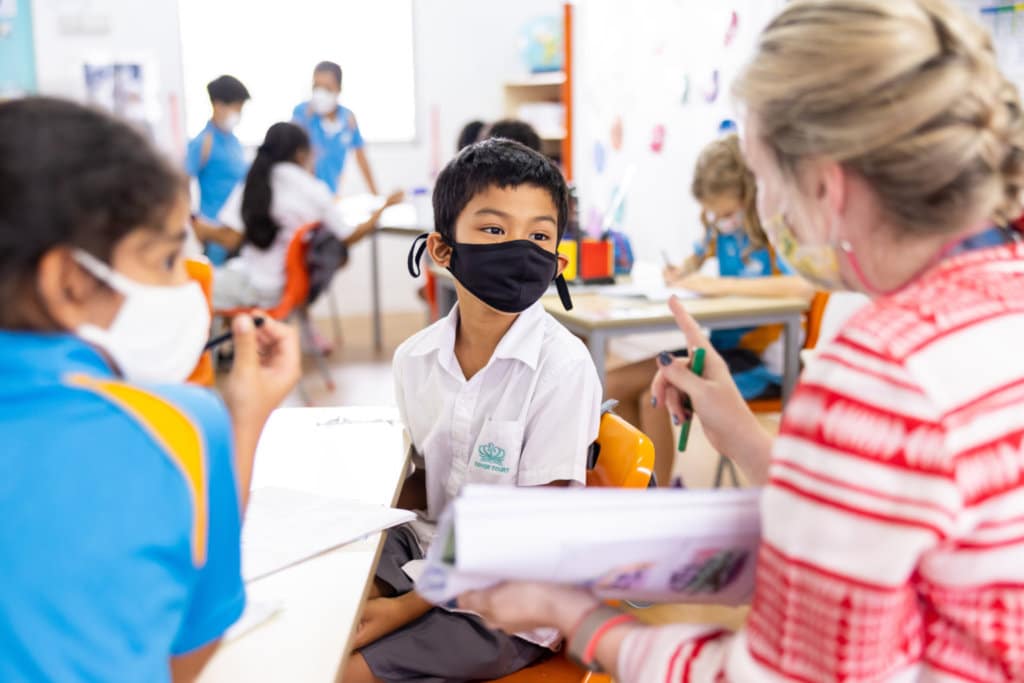
Children learn from a caring and community-orientated school that sets them up for lifelong success. Source: Dover Court International School
Diverse. Global. Success. These three words define Singapore’s Dover Court International School (DCIS). Situated in the heart of Singapore, the green 12-acre campus is home to children aged three to 18 who learn in a supportive and inclusive environment that sets them on a path to lifelong success.
Here, identity, equity and diversity are ingrained in the school’s culture and curriculum. Psychologists, speech and physical therapists, and teachers with qualifications in special needs integrate students with additional needs into main-school activities. Students from Nursery to Year 6 not only explore the origin of specific cultures, practices, and lifestyles, but also commit to individual and group projects that deepen the understanding of their research.
What sets DCIS apart is how it prepares students to thrive successfully in their journey beyond school. To achieve this goal, they modified the English National Curriculum to create an education with an international perspective – suitable for children who will grow up to be members of a global community. Young minds flourish through this combination of rigorous grounding in core subjects — like English, Mathematics, and Science — with international awareness, social responsibility, and language acquisition.
The best part? DCIS students benefit from global programmes like “Global Campus” (a virtual learning environment that connects DCIS students with peers in 79 Nord Anglia Education’s schools) and global collaborations with the Massachusetts Institute of Technology (MIT), UNICEF, and The Juilliard School.
North London Collegiate School Jeju
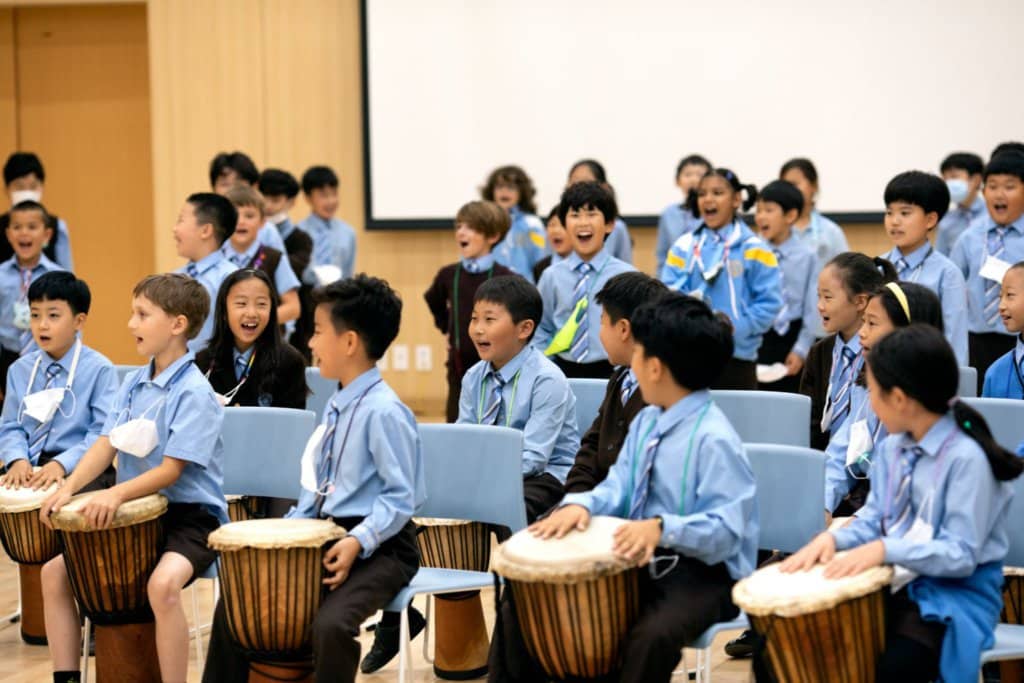
Students start here to go anywhere. Source: North London Collegiate School Jeju
Jeju Island in South Korea is an amazing location for students, staff, and families. With a beautiful countryside, a stunning coastline, a towering dormant volcano, 360 satellite volcanic hills — and more — it is a privilege to live and study within one of the world’s new Seven Wonders of Nature.
Enter North London Collegiate School Jeju (NLCS Jeju), a day and boarding international school for girls and boys aged four to 18. NLCS Jeju students come from Korea, China, Japan, and the rest of Asia. Here, they follow the world-renowned British curriculum without having to go to the UK — saving money and enjoying a closer distance to home. They really can start here to go anywhere.
Starting this exceptional beginning at NLCS Jeju, many graduates go on to enjoy happy lives as global citizens and future world leaders. Its Junior School is a friendly and warm place for children aged four to 11. They pursue an ambitious education programme in small classes that ensure quality interaction with their teachers.
Its Senior School is just as prolific. Through key stages of their education, they work towards sitting for the IGCSE course and then follow the International Baccalaureate (IB) Diploma programme, both of which boast outstanding results by past students, thanks to NLCS Jeju’s academic excellence.
Pair good grades with a wealth of co-curricular opportunities, and NLCS Jeju students evolve into exceptional individuals who believe that anything is possible. From sports to music, drama, art and leadership, students have almost 150 different activities and academic societies to choose from every week.
*Some of the institutions featured on this article are commercial partners of Study International








